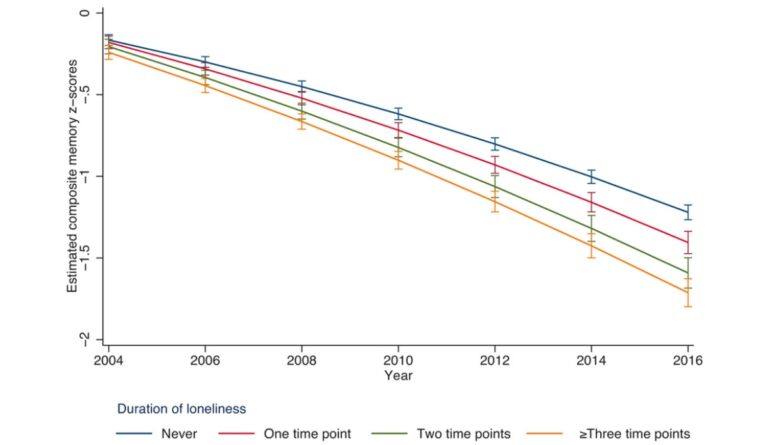Friends for Life
Increased loneliness and social isolation are associated with memory decline and an increased risk for Alzheimer’s disease.

Read Time: 2 minutes
Published:
The next time you meet up with friends, don’t forget to thank them in advance for keeping you alive and well. According to a recent study, being less lonely as you age can slow down memory loss and prevent Alzheimer’s disease from progressing.
Xuexin Yu and colleagues at the University of Michigan’s Center for Social Epidemiology and Population Health investigated the connection between duration of loneliness and memory function from 1996 to 2016. For the first eight years, the team met with participants over age 50 at multiple time points to ask how often they felt lonely. Those who felt loneliest were asked to complete a memory test every other year for the next 12 years.
The researchers found increased loneliness and social isolation leads to memory decline and increased risk for Alzheimer’s disease. Participants who reported long periods of loneliness had lower memory scores and a faster rate of decline than less lonely study participants. Adults who felt lonely at more than three time points (yellow line) had the lowest memory scores. This association was found to be stronger as individuals got older and was stronger in women than in men.
To prevent poor memory and increased risk for Alzheimer’s disease, the study suggests paying increasing attention to feelings of loneliness during late middle age. The best way to be less lonely is to increase social interaction with friends, colleagues, family members, and other people in your community.
So remember, a strong social supportive network can help with a sharper mind into older adult years.
Databyte via Xuexin Yu, Ashley C. Westrick, Lindsay C. Kobayashi. Cumulative loneliness and subsequent memory function and rate of decline among adults aged ≥50 in the United States, 1996 to 2016. Alzheimer’s & Dementia, 2023.



